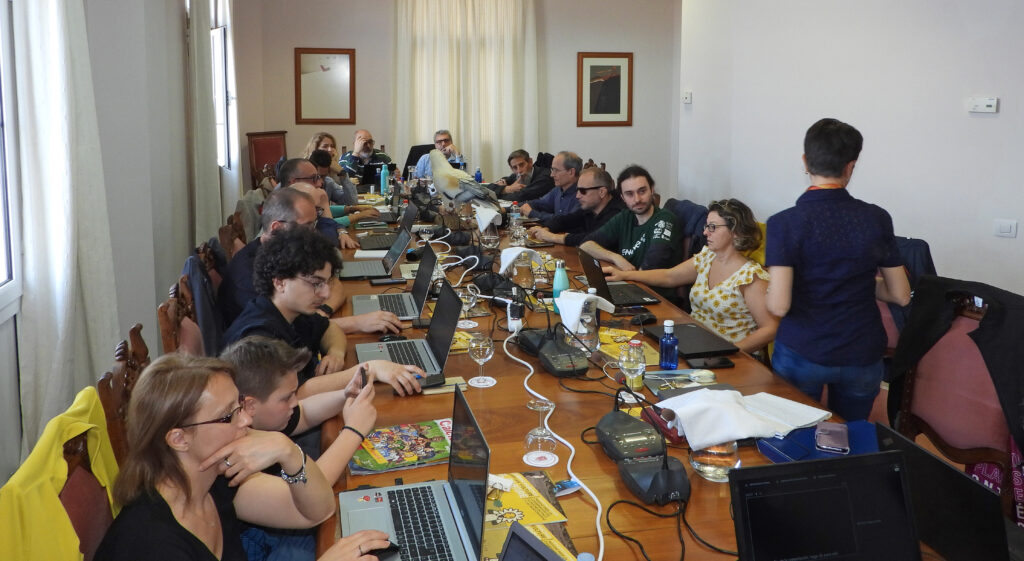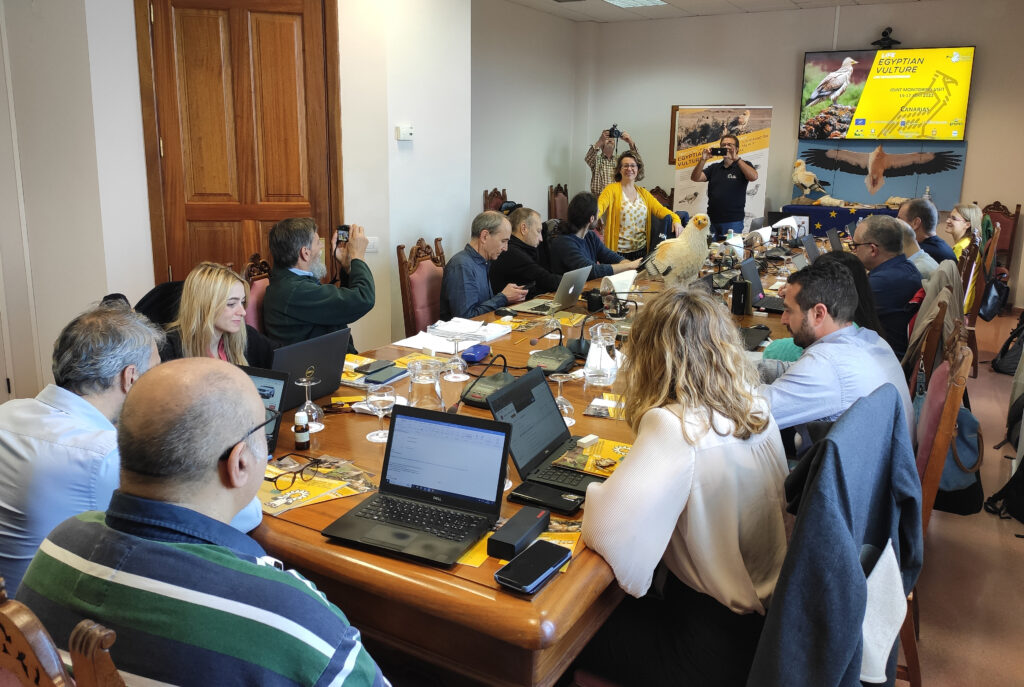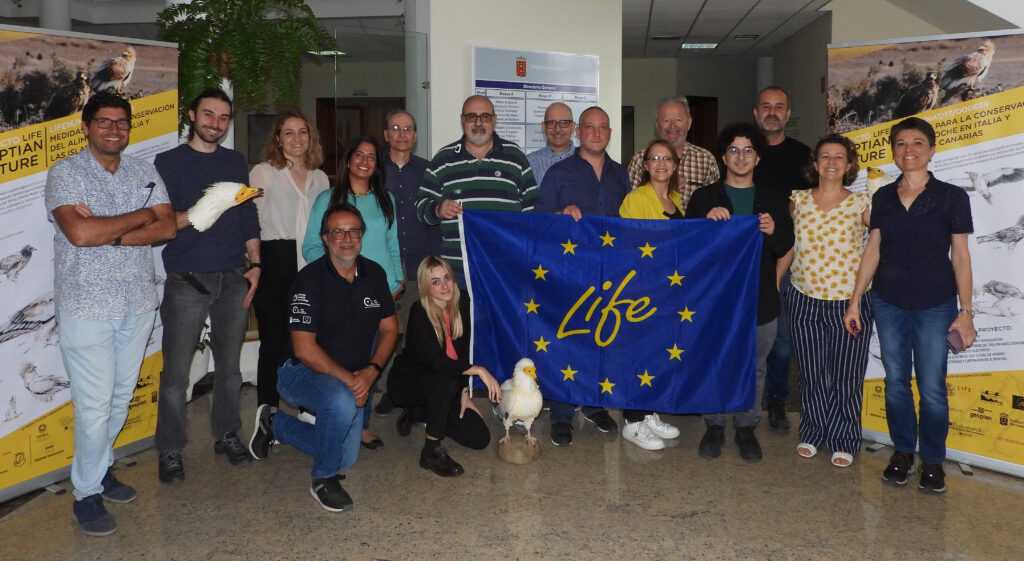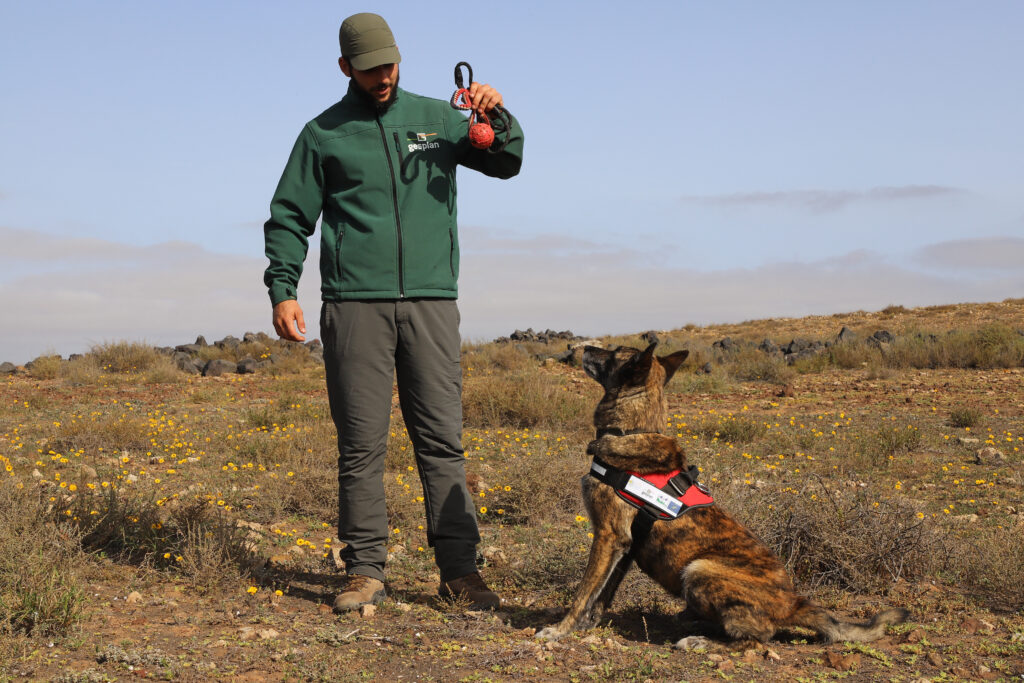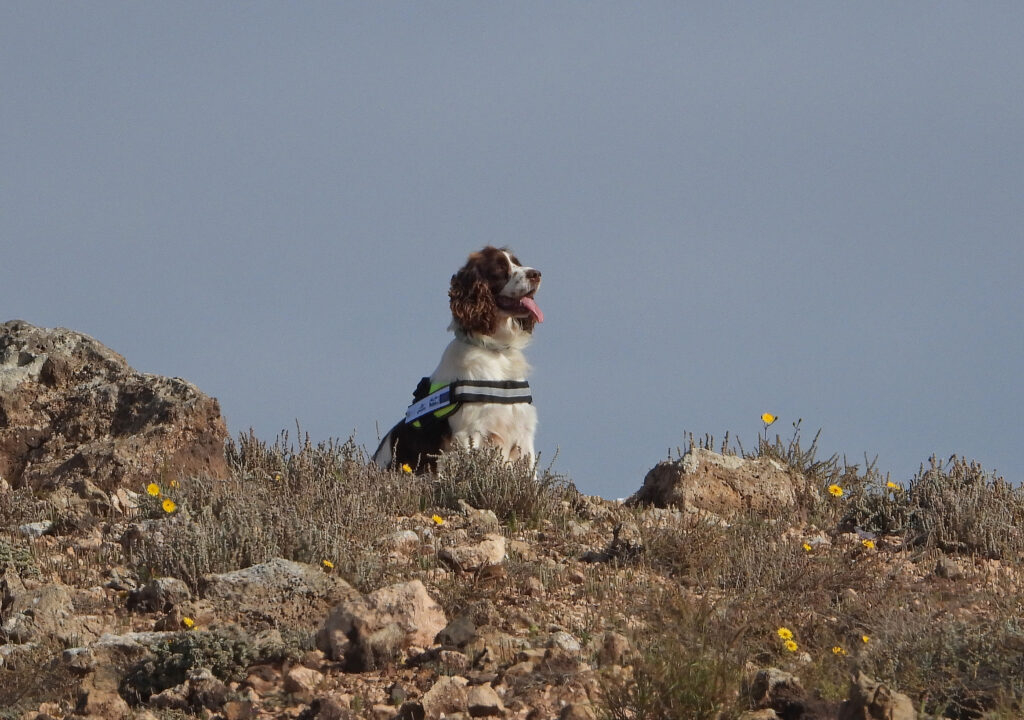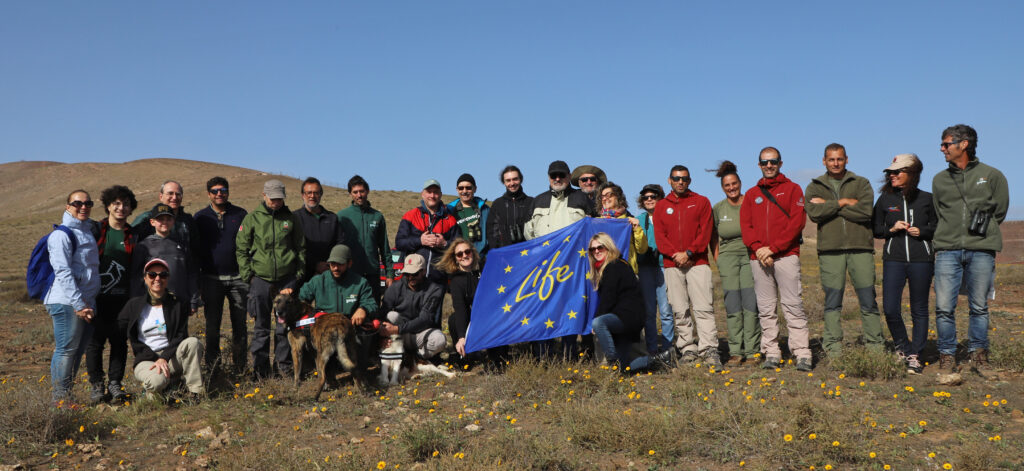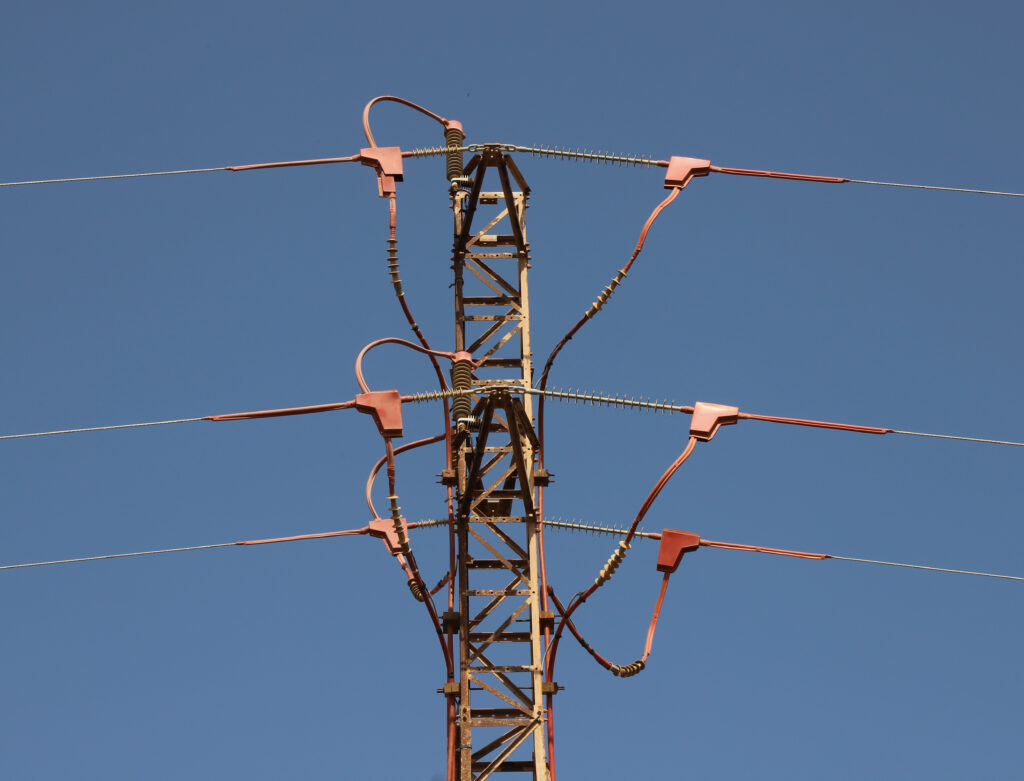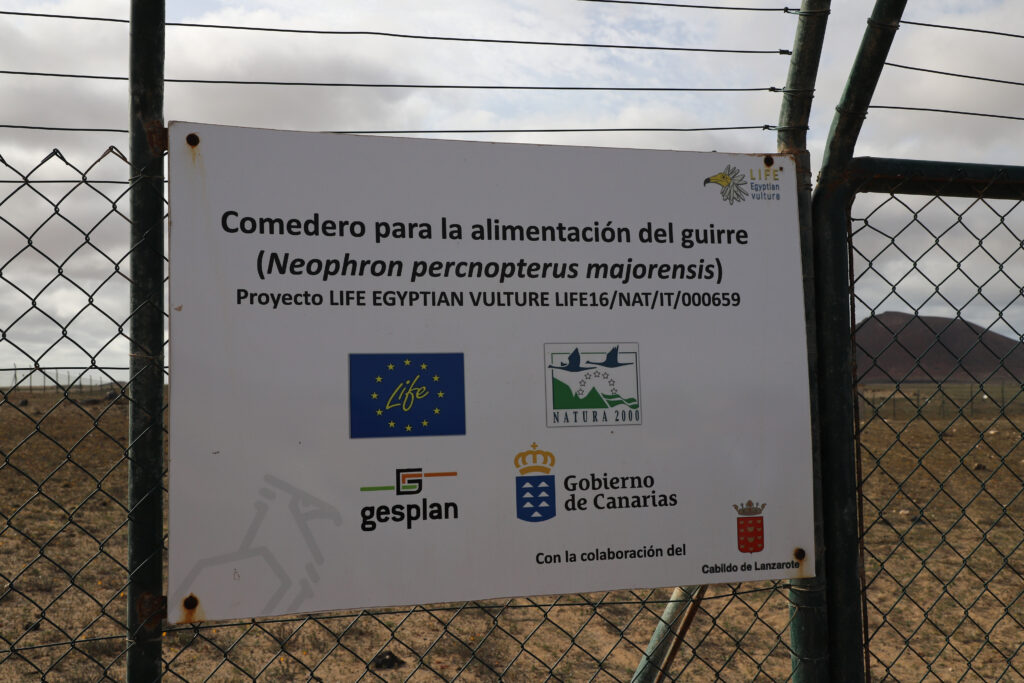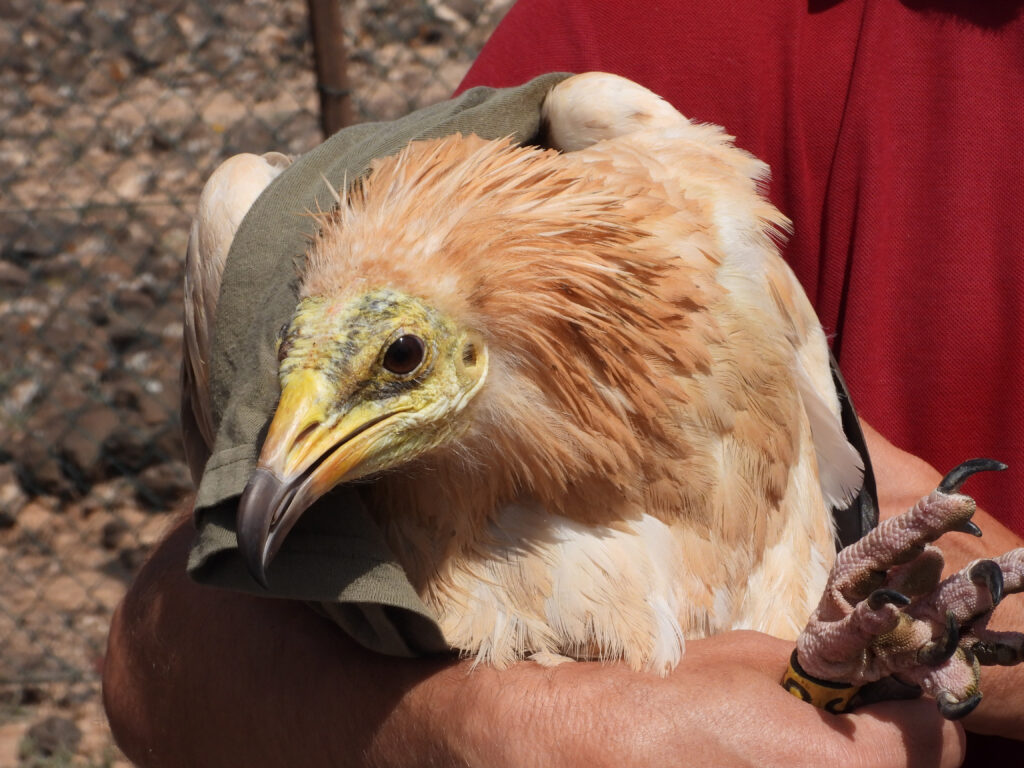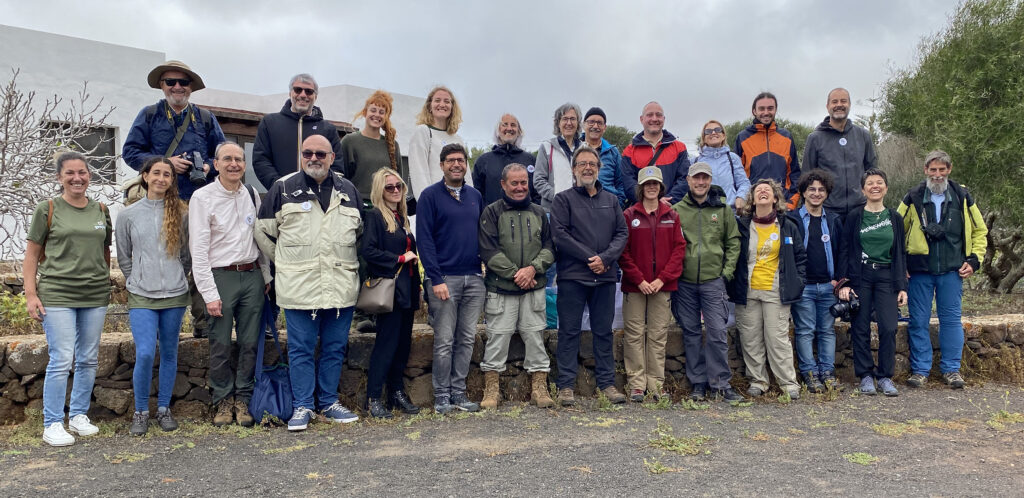On 15-16-17 March 2023, a monitoring visit of the LIFE Egyptian vulture project took place in the Canary Islands, which was attended by the beneficiaries’ staff, Dr Alberto Cozzi, project monitor, and Dr Simona Bacchereti, advisor of CINEA, the European Commission agency managing the LIFE programme. The visit was organised by the Government of the Canary Islands (Gobierno de Canarias) and GESPLAN with the support of the Cabildo de Lanzarote and the Cabildo de Fuerteventura, the local government authorities that also actively collaborated in the implementation of this LIFE project.
The event consisted of one day of technical-administrative review and two days of inspections in the project areas of the islands of Lanzarote and Fuerteventura.
During the technical-administrative meeting, which took place at the Cabildo de Lanzarote headquarters in Arrecife, the beneficiaries presented all the activities that had been developed over the almost six years of the project and highlighted the results obtained, as well as the critical issues encountered. In addition, some important administrative and financial aspects of project management were examined.
The Italian project areas focused on the monitoring of sensitive areas for the species, the activation and management of six supplementary feeding areas, activities to combat the use of poison (including inspections by Anti-poison Dog Units of the Carabinieri forest rangers), the modification of several hundred medium-voltage power line poles (to mitigate the risk of electrocution for the species) and the release into the wild and monitoring of captive-born young Egyptian vultures. The results of these actions on the conservation status of the species in Italy were analysed in a talk presented by ISPRA.
With regard to the Canary Islands, the results of the long-term monitoring of the Egyptian vulture population carried out by the Estación Biológica de Doñana-CSIC, the creation of two new feeding stations in Lanzarote, activities to combat the illegal use of poison (which included the creation of an Anti-Poison Dog Unit), the modification of power lines and the construction of new aviaries in the Estación Biológica de La Oliva to house unrehabilitatable individuals for captive breeding were all presented.
The information and awareness-raising campaigns developed in Italy and the Canary Islands were also described in detail, and, among other targets, extensively addressed the school population.
During the meeting, in light of the current situation of the Egyptian vulture in Italy and the Canary Islands and the experience gained through the LIFE Egyptian vulture project, the actions that need to be pursued in the coming years to consolidate the results obtained so far and the further measures that would be desirable to implement to support this threatened species were discussed. Finally, the initiatives to disseminate the experiences gained during the project among those involved in vulture conservation in Europe were presented.
On 16 and 17 March, the LIFE team, accompanied by technicians from the two island governments and environmental agents, visited some areas where project actions were developed by the Gobierno de Canarias, GESPLAN and E-Distribución.
In particular, nesting areas that are being monitored and controlled were visited, and some of the 222 220 kV power line pylons that have been modified to allow the Egyptian vulture to roost without risk were examined.
The Anti-Poison Dog Unit, activated in Lanzarote and Fuerteventura in 2019 thanks to LIFE Egyptian vulture, carried out a demonstration of searching for a poisoned bait, which showcased the extraordinary efficiency of the dogs and handler.
The group inspected one of the two feeding stations that have been built on Lanzarote, and visited the Estación Biológica de La Oliva, a facility managed by the Cabildo de Fuerteventura, where a number of Egyptian vultures are housed. These vultures, victims of accidents and no longer able to live in the wild, are now destined for captive breeding.
In Lanzarote, the LIFE group was also able to witness the release of an Egyptian vulture that had been found in poor health a few weeks earlier due to the ingestion of poisoned bait. The cooperation of the local people, the rapid intervention of the TRAGSA company and the Cabildo de Lanzarote, the care given at the veterinary clinic in Arrecife and the intervention of environmental agents and the Canary Island Wildlife Sanitary Surveillance Network (Red Vigía Canaria) made it possible to save this individual’s life and allow him to fly free on his island. The next meeting of the beneficiaries’ staff, at which they will take stock of the activities carried out, review the status of the species and what is needed to ensure its future conservation, will be the project’s final conference in Italy in September 2023.
